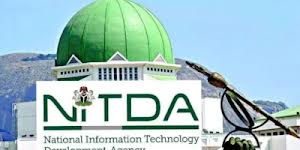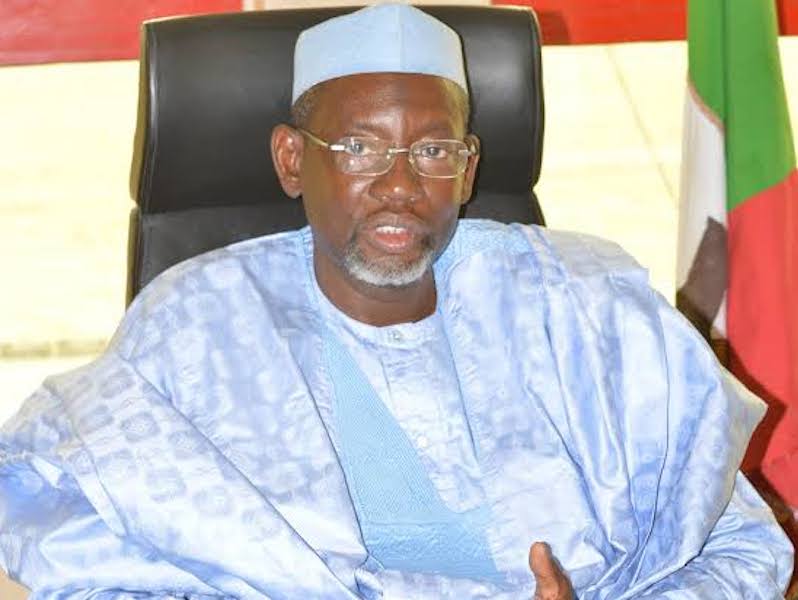By Chimezie Godfrey
Stakeholders have urged the National Information Technology Development Agency (NITDA) and the National Identity Management Commission, NIMC, to work on ensuring the authenticity, integrity and confidentiality of the national identity system through the application of blockchain adoption technology.
This was part of the resolutions made and contained in the Communique issued at the end of the 2022 edition of the Digital Nigeria International Conference, Exhibition and Awards from the 25th through 27th October 2022 at the International Conference Centre, Abuja with a carefully and timely chosen theme “Digital Transformation: A Path to Sustainable Digital Economy”.
Recall that NITDA in collaboration with all the Agencies/ Parastatals under the supervision of the Ministry of Communications and Digital Economy as well as other critical stakeholders in the IT sector, organized the 2022 edition of the Digital Nigeria International Conference, Exhibition and Awards.
The conference provided a platform to brainstorm on contemporary issues in ICT and how ICT can be leveraged for sustainable national development. It had in attendance national leaders, ICT experts, public and private sector CEOs, solution providers, Non-Governmental Organizations (NGOs), and other relevant stakeholders in the Digital Economy sector.
Eminent dignitaries that attended the conference included the Minister of Communications and Digital Economy, Prof Isa Ali Ibrahim (Pantami), – Chief Host/Chief Convener; Minister of Information and Culture – Alhaji Lai Mohammed, Representatives of the Secretary to the Government of the Federation, Permanent Secretary Federal Ministry of Communications and Digital Economy (FMCDE), Dr Alo Nwankwo, the Chairman, Senate Committee on ICT and Cybersecurity – Senator Yakubu Useni, Minister of Communications and Digital Economy, Gambia – Ousman A. Bah, Secretary General, Digital Cooperation Organization – Deemah Yahya Alyahya, among others.
Also, in this year’s edition, 18 renowned foreign professionals from the global community were invited and actively participated in the conference (onsite and online). Their participation added much value
to the conference especially its impact level as participants drew from their experiences, expertise, knowledge transfers mechanisms and solutions to a wide range of topical issues that included general global best practices and specific Nigerian cases.
One of the highlights of the Conference was the unveiling of the book “Isa Ali Ibrahim Pantami: Advancing Nigeria’s Drive Towards a Digital Economy” written by Mr Obiora Ezike.
Stakeholders at the conference made observations which included the fact that there was need to strengthen the collaboration of all relevant stakeholders, and ensure that substantial funding is provided to unlock innovation, the need to provide tax holidays and reduce multiple taxations for innovators, and that essential infrastructure for digital devices and internet connectivity access was insufficient.
They also observed that there was deficiency of funding and access to grants for startups, lack of awareness among startups on intellectual property protection, patent, and
copyright, lack of improved cyber-security laws required to protect intellectual property, and that institutions of learning should review existing curricula to include entrepreneurship and hands-on skills required for innovation, among many others.
The aggregated views from the conference also noted the advantages to the Nigerian digital economy which included that the citizenry is aware of Federal Government’s efforts towards providing essential digital transformation building blocks such as infrastructure, policies, regulatory frameworks, digital skills, etc.
Also that the Nigerian startup ecosystem is relatively thriving, positioned as a leading player in Africa, and that the country is ranked 61st in the global tech ecosystem.
Others are that the adoption of blockchain has high possibilities to generate hundreds of thousands of dollars of revenue and will greatly impact the Digital Economy in Nigeria, and regulations are indispensable to the proper functioning of economies and the country at large which are pertinent in promoting innovations and protecting consumers, among others.
They stated,”The stakeholders also recommended that: NIMC and NITDA should work on ensuring the authenticity, integrity and confidentiality of the national identity system through the application of blockchain Adoption technology; and Intellectual Property laws and rights management which includes copyright, trademarks, patents, and trade secrets should be introduced into the virtual asset space.
“Sandboxes should be deployed for testing innovations.
“Government should raise public awareness of digital currency (e-Naira) and provide incentives friendly policies as part of migration plans to eNaira.
“The Federal Government should mandate the Central Bank of Nigeria (CBN) to make the eNaira API available for fintech companies to integrate eNaira into more platforms and applications.
“Stakeholders’ engagements should be adopted and used to develop an interoperability framework to drive the adoption of e-Naira as a means to enable players to use, reuse, push, and
pull all it takes to participate.
“The reduction of organizational behaviour, bureaucracy and bottleneck and eNaira sign-up should be of high priority.
“The CBN should impose stringent sanctions on conventional banks to ensure that they support the e-Naira.
“Government should launch Regulatory frameworks that ensure the inclusivity of the startup ecosystem.
“Investment in human capital development and process transparency should be increased as open collaboration will create a lot of opportunities.”
The stakeholders urged the Government to foster more investment in infrastructure and enabling environment to support blockchain adoption.
They streessed that Government should increase awareness of inherent risks associated with blockchain and other digital technologies to avoid attacks.
“Startups should learn how to properly document their innovations, effectively communicate and present their solutions to prospective investors for funding.
“Aggressive and situational awareness of blockchain technology adoption should be given priority by the government.
“The government should set up the non-dilutive incubator and accelerator programs to support innovators in the ideation process.
“The new Startup Act (policies) should be implemented to encourage startups in the innovation lifecycle.
“Increased collaboration and value creation through stakeholder synergy should be encouraged.
“Startups should be coached and encouraged to develop solutions that solve real-world problems and societal demands for sustainable value creation and growth.
“Benefactors, designers and founders should adopt a structural mindset for their digital-enabled businesses to succeed and endeavour to work collaboratively with a technical professional.
“Startups should have a global-orientated mindset to meet the demands of the international market.
“Government should initiate a dedicated pool of funds to support start-ups and as well facilitate access to grants, mentorship and coaching.
“The talent deficit gap should be bridged by building talents in their areas of core interest.
“Governments at all levels should deepen their support for women start-ups through enterprising development programs due to their cultural marginalization and gender sensitivity; and the government should provide an enabling environment for creating local content ICT that can be accessed with local currency to mitigate capital flight and struggle for foreign currency.
“An Interdisciplinary Technical Working Group should be set up to develop a sustainable model for hosting Digital Nigeria International Conference.
“The scope and coverage of the conference should be expanded to include locations such as Lagos.
“Partnering with the national and international stakeholders’ organizers of tech expo to
institutionalize an enduring and globally recognized Digital tech exhibition.
“Leveraging on the current relationship with ecosystem to institute an enduring platform for future engagement in the management and organizing such international conference.
“Registering and patenting the Digital Nigeria trademark as an entity on its own is required,” they stated.
The NITDA board, management and entire staff expressed their profound gratitude to the dignitaries, the invited guests, ICT industry stakeholders and participants for their contributions for the huge success achieved in the 2022 Digital Nigeria International Conference.
They assured that NITDA, in collaboration with relevant stakeholders, would work to ensure the implementation of the recommendations for a better digital Nigeria.



